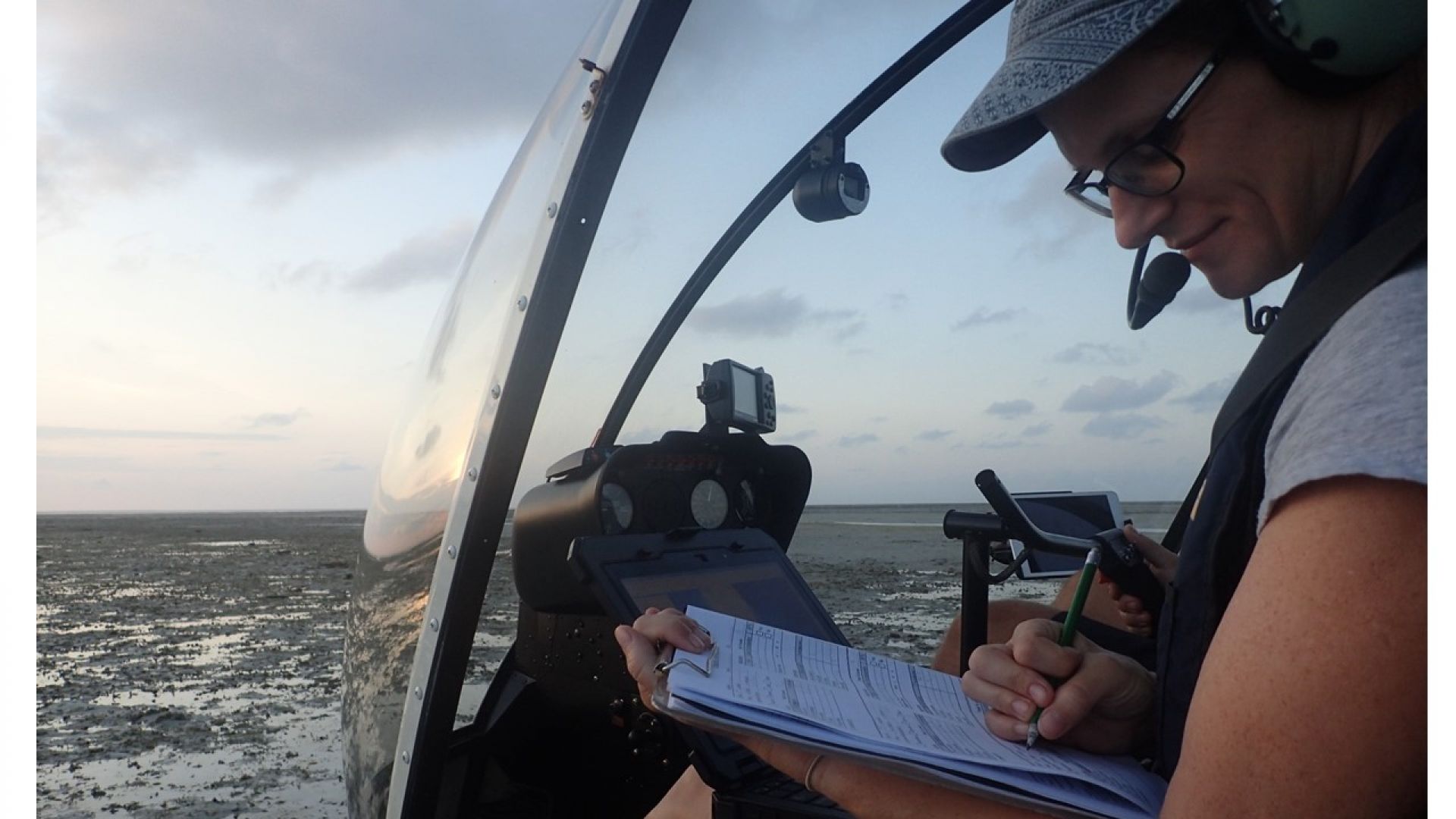Media Releases
JCU and TSRA to assess dugong and turtle habitat

James Cook University scientists with assistance from the Torres Strait Regional Authority (TSRA) Indigenous Rangers will be keeping an eye on the health of a crucial food for dugongs and turtles.
JCU’s Centre for Tropical Water & Aquatic Ecosystem Research (TropWATER) and the TSRA will expand their seagrass research program this month to assess the state of critical dugong and green sea turtle habitat in the Torres Strait.
TropWATER’s Dr Alex Carter will lead the surveys and has been working with the TSRA and Indigenous Rangers to monitor seagrass for over 10 years. Dr Carter said the new project was a great example of scientists working with the community, government and Indigenous rangers to collect critical environmental management data for the region.
The team will survey reef-top and deep-water seagrasses in turtle and dugong hot spots of the Eastern and Western Torres Strait Islands. They will then work with local communities and rangers to develop long-term monitoring programs for priority seagrass sites in the region.
“This work builds on over 20 years of collaboration between the JCU research team and the Torres Strait community to manage and understand seagrasses in the Torres Strait – the key food for local dugongs and turtles,” said the TSRA Chairperson, Mr Napau Pedro Stephen.
“This work is really important as Torres Strait is home to the world’s largest population of dugong, and they rely on the seagrass meadows of the Torres Strait for their food and survival,” said Mr Stephen.
In addition, many of the marine turtle species under threat in the Australian Marine Turtle Recovery Plan nest across the Torres Strait region, an area considered critical for their ongoing survival.
The Director of TropWATER’s Seagrass Ecology Lab, Dr Michael Rasheed said embracing local and traditional knowledge on seagrass, dugongs and turtles was a key element to their successful management in the Torres Strait.
“Torres Strait Islanders have a deep connection and knowledge on dugongs, turtles and the seagrasses that support them. Working closely with the community and other scientists has enabled us to focus on places that seem to be of particular importance for the species, but where we have limited current information on the state of seagrass,” he said.
The team will be using helicopters to survey the intertidal areas of Mer and Dauan Islands, Maizab Kaur (Bramble Cay), and surrounding reef-top habitats. The deeper waters of the western Torres Strait will be surveyed using remote camera systems operating from research boats.
Dr Carter said the results of the surveys will be a key element of local dugong and turtle management plans and adds to the seagrass monitoring partnership between JCU researchers and TSRA rangers which assesses seagrass at more than 27 locations across the Torres Strait.
Link to photos here. Please credit TropWATER/JCU.
JCU: Dr Alex Carter
E: alexandra.carter@jcu.edu.au
TSRA: Moni Carlisle
E: Moni.carlisle@tsra.gov.au